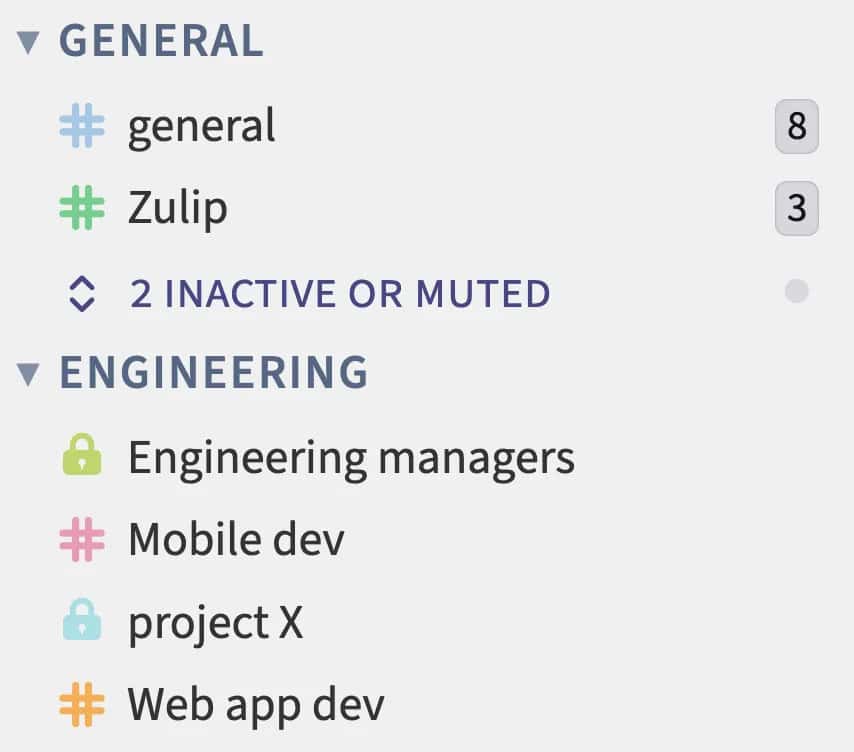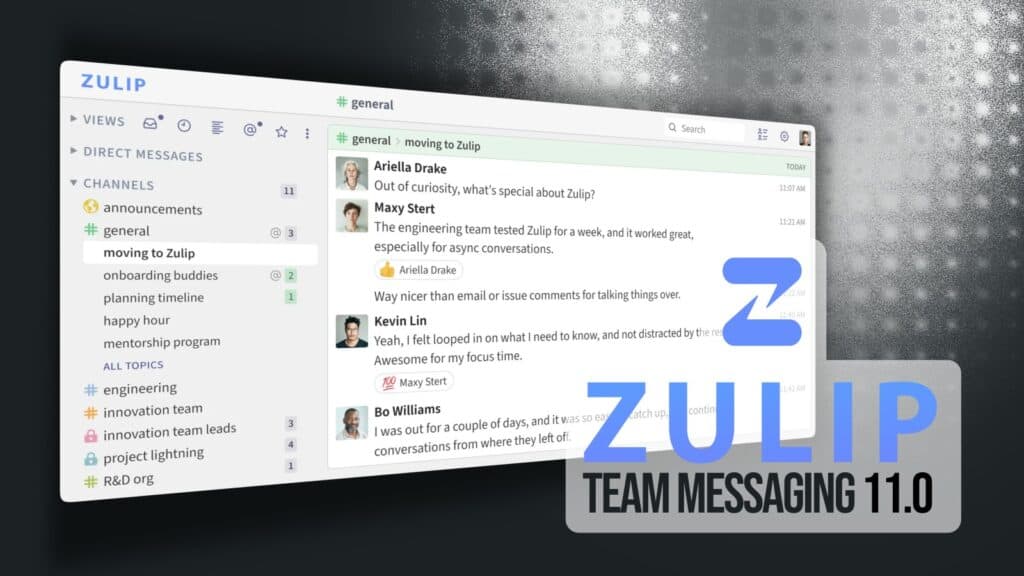Zulip, an open-source team chat platform with a topic-based threading system, positioning itself as an alternative to corporate-owned ones like Slack and Discord, released version 11.0, bringing some new features and numerous refinements.
Among the highlights are message reminders, which allow users to schedule follow-ups on important conversations, and the option to create channels without topics, offering more flexibility in how discussions are structured. Organizations can also group conversations with channel folders.

Moreover, users can now quickly scan recent topics in any channel, manage unread messages with greater control, and convert long pasted text into uploaded files for easier sharing. Plus, the left sidebar has been revamped with new filters and configuration options, making it faster to jump into ongoing conversations.
On the design side, Zulip has adopted a cleaner, more minimal look across its settings interface. At the same time, the handling of images, videos, and search suggestions has been streamlined to better fit into the flow of discussion. Channel and group management have also been expanded, giving administrators more granular control over permissions, message movement, and topic requirements.
Regarding security, Zulip 11.0 introduces server-side support for end-to-end encrypted push notifications, a feature that will be enabled on mobile apps in the coming weeks.
And speaking of mobile, the project recently launched its next-generation Android and iOS apps, rebuilt with Flutter for improved speed and usability. Since the June launch, five updates have already rolled out, adding back much-requested features like read receipts, user status, emoji reaction tracking, and TeX math support.
Integrations is another area where the application has been improved. For example, LDAP now automatically supports handling changes in user email addresses upon login. Additionally, Zulip’s SAML and SCIM now allow syncing the membership of Zulip groups from the identity provider.
On top of that, new integrations with OpenProject and OpenSearch have been added, while existing connections with GitHub, GitLab, and Jotform were improved.
For more information, see the announcement. According to the devs, the Zulip team plans to stick with its pace of two major releases a year, with the next one, v12.0, expected in early 2026.
Image credits: Zulip Project
